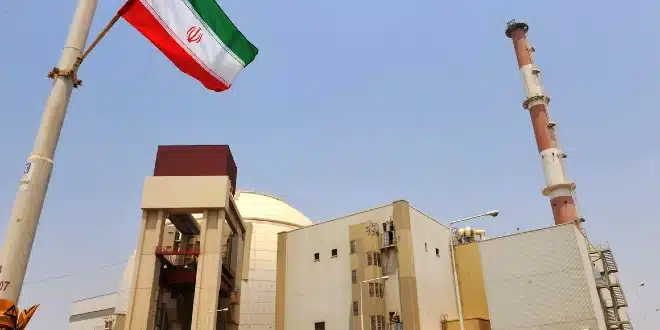Tensions between the United States and Iran have escalated following warnings from both sides, prompting sharp exchanges and renewed nuclear concerns. An adviser to Iran’s Supreme Leader has stated that Iran may be forced to pursue nuclear weapons if attacked, a move that would mark a significant shift in the country’s stated policy.
Ali Larijani, speaking on state television, emphasized that Iran is not currently aiming to develop nuclear arms. However, he warned that if the United States or its allies launch military strikes, Iran would be compelled to defend itself through any necessary means—including reconsidering its nuclear stance.
This warning follows U.S. President Donald Trump’s comments over the weekend, where he threatened potential bombing of Iran if no nuclear agreement is reached. Trump also hinted at imposing “secondary tariffs” as additional pressure, although it remained unclear whether he envisioned direct American military action or a joint effort with regional allies like Israel.
Rising Regional Tensions and Indirect Diplomacy
Iran’s Supreme Leader Ayatollah Ali Khamenei responded by promising a strong retaliation should any aggression occur. Iranian officials have since lodged formal complaints, including a letter to the United Nations Security Council and summoning the Swiss envoy who represents U.S. interests in Tehran.
Senior Iranian military figures have also issued warnings. General Amirali Hajizadeh, responsible for Iran’s missile programs, warned that the U.S. military presence in the region would be vulnerable in the event of a conflict. Comparing the American position to being in a glass room, he cautioned against reckless actions.
Diplomatic signals have continued despite the aggressive rhetoric. President Trump reportedly sent a letter to Khamenei proposing negotiations and cautioning about possible military repercussions. Delivered through the United Arab Emirates, this letter was later acknowledged by Iranian officials, who stated they had responded via Oman.
Foreign Minister Abbas Araghchi confirmed that direct talks are off the table under current conditions but did not rule out indirect discussions. President Masoud Pezeshkian later added that Khamenei had authorized such indirect communications.
The backdrop to this crisis includes the collapse of the 2015 nuclear agreement, which limited Iran’s uranium enrichment in exchange for sanctions relief. Since Trump’s return to office and the revival of the “maximum pressure” campaign, Tehran has faced renewed sanctions and increased diplomatic isolation.
In parallel, accusations persist from Western governments that Iran continues to support proxy forces across the Middle East. Khamenei dismissed those claims, instead directing blame at Israel, describing it as a regional destabilizer and calling for its eradication—further inflaming the already volatile situation.


